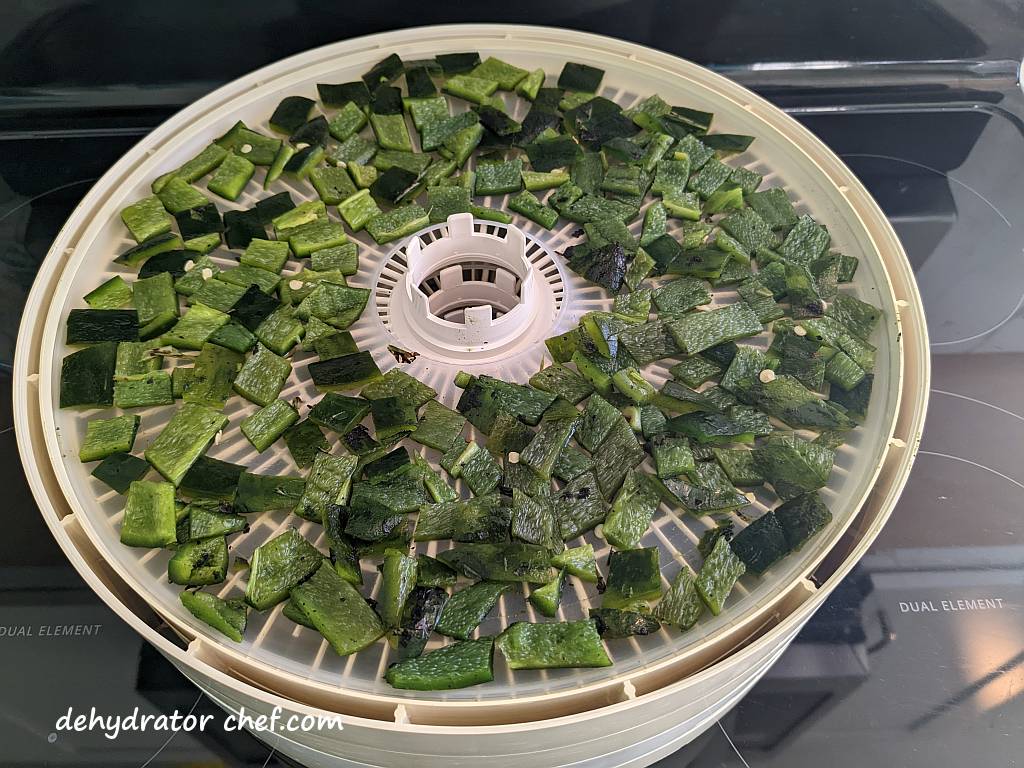Dehydrating vegetables for storage is a process of removing most, but not all, of the moisture content from fresh vegetables, resulting in lightweight and compact food that can be easily stored and transported.

By understanding and harnessing these advantages, we can make informed decisions about dehydrating vegetables for storage. These benefits not only enhance food security and self-sufficiency but also contribute to reducing waste, ensuring a healthier lifestyle, and making outdoor adventures more enjoyable. Embracing vegetable dehydration opens up a world of possibilities for long-lasting, nutrient-packed, and delicious meals, no matter what may happen.
Table of Contents
- Advantages of Dehydrating Vegetables for Storage
- Key Reasons for Dehydrating Vegetables for Storage
- Summary
Advantages of Dehydrating Vegetables for Storage
- Longer Shelf Life: Dehydrated vegetables have a significantly longer shelf life compared to their fresh counterparts. When stored properly in airtight containers, dehydrated vegetables can last for many months, making them ideal for camping trips, hiking adventures, or even emergency situations. Having access to non-perishable food that lasts for a very long time can be a game-changer. It ensures that you have a reliable and sustainable source of nutrition even when fresh produce is scarce or unavailable.
- Reduced Food Waste: Dehydrating vegetables helps combat food waste. It allows you to use up excess produce before it spoils, especially during harvest seasons or when you have a surplus from your garden. By dehydrating vegetables, you can minimize waste and ensure that you have a steady supply of nutritious food. This not only saves money but also reduces your environmental footprint by preventing unnecessary food disposal.
- Nutrient Retention: Dehydrating vegetables preserves most, but not all, of their nutritional content. While some nutrients may be lost in the drying process, many vitamins, minerals, and antioxidants remain intact. Dehydrated vegetables can be a valuable source of essential nutrients when fresh options are limited.
- Lightweight and Portable: When you’re hiking, camping, or engaging in any outdoor activity, the weight and portability of your food supply are critical factors. Dehydrated vegetables significantly reduce the weight and bulk of your supplies, making them easier to carry and transport.
- Versatile and Convenient: Dehydrated vegetables offer incredible versatility. They can be easily incorporated into soups, stews, stir-fries, or rehydrated for side dishes. Whether you’re cooking at home or on a camping trip, having dehydrated vegetables on hand provides a convenient and nutritious option.
There are many other advantages of dehydrating vegetables, we only listed our top five. By understanding and harnessing these top five advantages, we can make informed decisions about dehydrating vegetables for storage. These benefits not only enhance food security and self-sufficiency but also contribute to reducing waste, ensuring a healthier lifestyle, and making outdoor adventures more enjoyable. Embracing vegetable dehydration opens up a world of possibilities for long-lasting, nutrient-packed, and delicious meals.
Key Reasons for Dehydrating Vegetables for Storage
Dehydrating vegetables serves multiple purposes and provides numerous benefits. Many more than we have listed. These are our top five reasons for dehydrating vegetables for storage:
- Making Homemade Dehydrated Camping Meals: When you’re camping, hiking, spending time in the field, or prepping for events, nourishing and convenient meals are crucial. Dehydrated vegetables serve as a foundation for creating homemade dehydrated camping meals. By combining dehydrated vegetables with other dehydrated ingredients like meats, grains, and spices, you can prepare flavorful and nutritious meals that are lightweight, compact, and easy to carry. This reason is particularly important for campers and hikers who want to enjoy delicious meals without the need for refrigeration or bulky cooking equipment.
- Stocking up the Pantry: Building a well-stocked pantry is a prudent step towards food security and preparedness. Dehydrating vegetables allows you to preserve seasonal produce or take advantage of sales and discounts, ensuring a steady supply of nutritious ingredients year-round. By having a pantry stocked with dehydrated vegetables, you’re better equipped to handle unexpected situations, create diverse meals, and maintain a balanced diet even when access to fresh produce is limited.
- Food Preparedness: Dehydrated vegetables play a vital role in food preparedness. In times of emergencies, natural disasters, or when access to fresh produce is limited, having a supply of dehydrated vegetables can be a lifesaver. They offer a reliable source of nutrients and contribute to a well-balanced diet during challenging circumstances.
- Becoming More Self-Sufficient: Dehydrating vegetables empowers you to become more self-sufficient. By growing your own vegetables or purchasing them locally, in bulk, or on sale, you can dehydrate and preserve your efforts, giving you a buffer and reducing reliance on the fragile supply chain. This self-sufficiency also promotes sustainability and, more importantly, helps you develop valuable skills in food preservation.
- Saving Money: Dehydrating vegetables can lead to significant cost savings. Buying fresh produce in bulk, on sale, or when it’s in season and dehydrating yourself is a budget-friendly option. Additionally, dehydrated vegetables are less prone to spoilage, reducing the risk of wasted food and saving you money in the long run.
There are many other reasons for dehydrating vegetables for storage, to have on hand just in case. In general, becoming more self-reliant as our ancestors once were, that is, the ability to rely on our own capabilities, resources, and skills without depending on others, was an everyday skill.
Summary
In summary, dehydrating vegetables for storage offers numerous advantages. It prolongs shelf life, reduces food waste, retains nutrients, provides lightweight and portable options, and offers versatility and convenience. By dehydrating vegetables, you can create homemade camping meals, stock up your pantry, prepare for emergencies, enhance self-sufficiency, and save money. Embrace the art of vegetable dehydration and unlock a world of delicious and long-lasting goodness for your outdoor adventures and food preparedness needs.
Next: Essential Tools and Equipment
Previous: Selecting the Best Vegetables to Dehydrate
